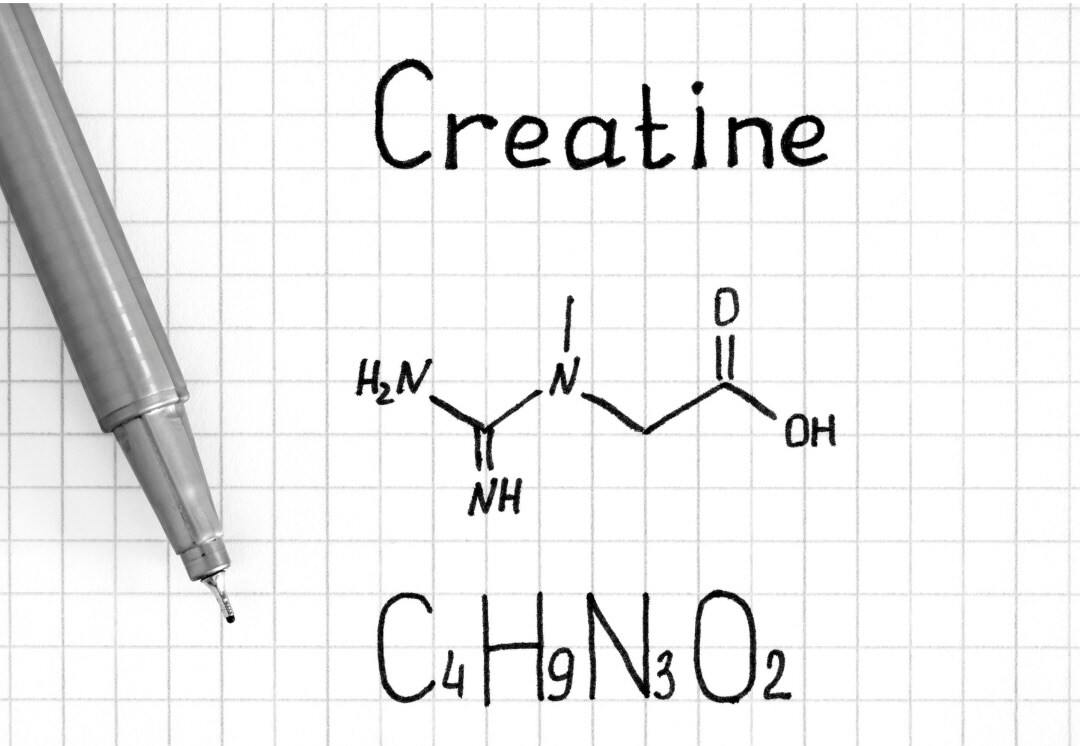Supplemental Creatine: A Performance Perspective from a Doctor of PT

WHAT IS CREATINE? Creatine, a naturally occurring nitrogenous organic acid, plays a crucial role in cellular energy metabolism, particularly in tissues with high energy demands such as skeletal muscle. In skeletal muscle, creatine exists in both free and phosphorylated forms, with the majority stored as phosphocreatine (PCr). PCr serves as a rapid reservoir of high-energy phosphate bonds, readily available for the rephosphorylation of adenosine diphosphate (ADP) to adenosine triphosphate (ATP) during periods of increased energy demand, such as intense exercise.
WHY SHOULD I USE CREATINE? One of the primary reasons for the widespread use of supplemental creatine among athletes and fitness enthusiasts is its well-documented ability to enhance exercise performance. By increasing intramuscular creatine and PCr concentrations, creatine supplementation augments the muscle's capacity to regenerate ATP, thereby delaying the onset of fatigue during high-intensity activities. This translates into improvements in strength, power output, and overall exercise performance, making it particularly beneficial for activities characterized by short bursts of intense effort, such as weightlifting, sprinting, and high-intensity interval training.
In addition to its immediate effects on exercise performance, supplemental creatine has been shown to promote muscle hypertrophy and facilitate adaptations to resistance training. By enhancing intracellular hydration and cell volumization, creatine supplementation creates an environment conducive to protein synthesis and muscle growth. Moreover, creatine may exert anabolic effects by modulating intracellular signaling pathways involved in muscle protein synthesis, such as the mTOR pathway (if you want to nerd out and learn more about mTOR, check out this paper HERE) Consequently, individuals undergoing resistance training while supplementing with creatine often experience greater gains in muscle mass and strength compared to those following the same training regimen without supplementation.
From a rehabilitation standpoint, creatine supplementation holds promise as an adjunctive intervention for enhancing recovery and optimizing rehabilitation outcomes. Following injury or surgery, maintaining muscle mass and function is paramount for facilitating recovery and preventing secondary complications. Creatine supplementation may attenuate muscle atrophy and strength loss during periods of immobilization or disuse, thereby expediting the return to pre-injury functional levels. Furthermore, creatine's potential to enhance muscle energy reserves and accelerate ATP regeneration may facilitate more robust rehabilitation protocols, allowing patients to tolerate higher training volumes and intensities without exacerbating tissue damage.
ARE THERE OTHER BENEFITS OF CREATINE? Beyond its well-established effects on skeletal muscle, emerging research suggests that creatine supplementation may confer neuroprotective and cognitive benefits. The brain, like skeletal muscle, relies heavily on ATP for energy production, and disruptions in energy metabolism can contribute to neurodegenerative diseases and cognitive decline. Creatine supplementation has been shown to enhance brain ATP levels, mitigate oxidative stress, and promote neurogenesis and synaptic plasticity, thereby potentially reducing the risk of neurological disorders and improving cognitive function. These findings have implications not only for athletic performance but also for overall health and well-being across the lifespan.
How much creatine should I be using and when should I start? Once medically cleared, individuals may start supplementing creatine when they choose! There are multiple forms of creatine sold on the internet. The most commonly used and researched is Creatine Monohydrate. Consumption guidelines typically suggest 5 grams of creatine per day; this will result in resting creatine stores being elevated to 95% or more within 4 weeks. It is important to note that while creatine supplementation is generally considered safe and well-tolerated, individuals should be mindful of potential side effects and contraindications. Common side effects such as gastrointestinal discomfort and water retention are typically mild and transient, but caution should be exercised in individuals with pre-existing renal dysfunction or predisposition to dehydration. Moreover, sourcing reputable, high-quality creatine supplements and adhering to recommended dosages and protocols are essential for ensuring safety and efficacy.
In conclusion, supplemental creatine represents a valuable tool in the arsenal of performance-based physical therapists seeking to optimize exercise performance, facilitate muscle adaptations, expedite recovery, and enhance rehabilitation outcomes. By augmenting intramuscular energy reserves, promoting muscle hypertrophy, and exerting potential neuroprotective effects, creatine supplementation offers a multifaceted approach to enhancing physical function and overall well-being. Thus augmenting the overall effects of therapy when creating is used. If you are looking for a great product we personally use, trust and endorse at The Mobile Athlete, try this Thorne Creatine and enjoy a discount (through that link).
However, as with any ergogenic aid, it is imperative to approach creatine supplementation judiciously, with careful consideration of individual needs, goals, and safety considerations by consulting with your medical doctor.
If you have any questions I would be happy to discuss further. Just email me at info@themobileathlete.net and I would be happy to discuss further.
In health,
Dr. Jacob
If you are interested in any of the other great products from Thorne that we endorse, check them out HERE and enjoy discounts and free shipping on great products.




